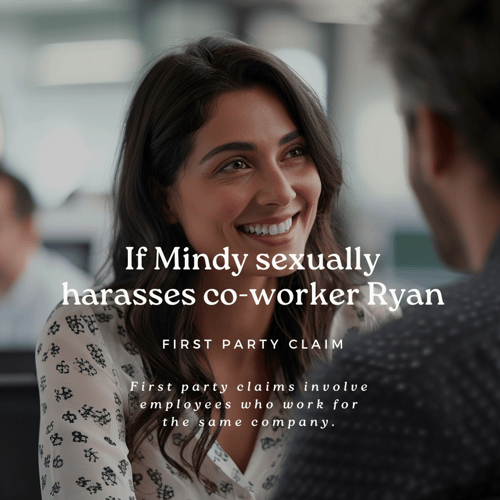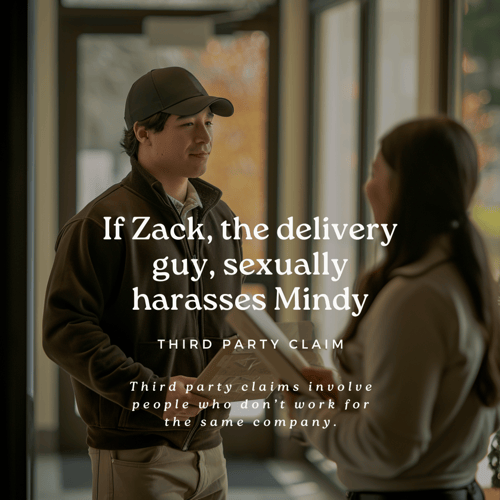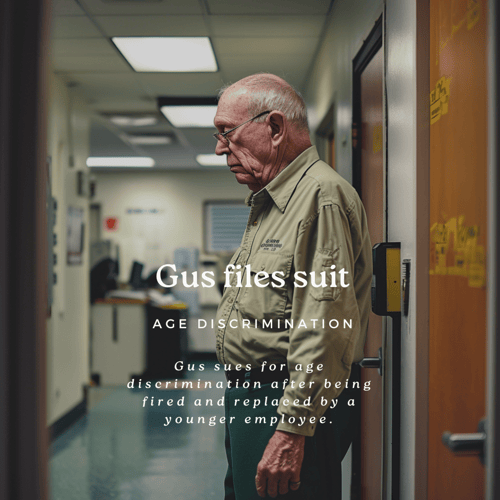Employment Practices Liability Insurance: Can You Afford to Operate Without it?
January 24th, 2024
6 min read
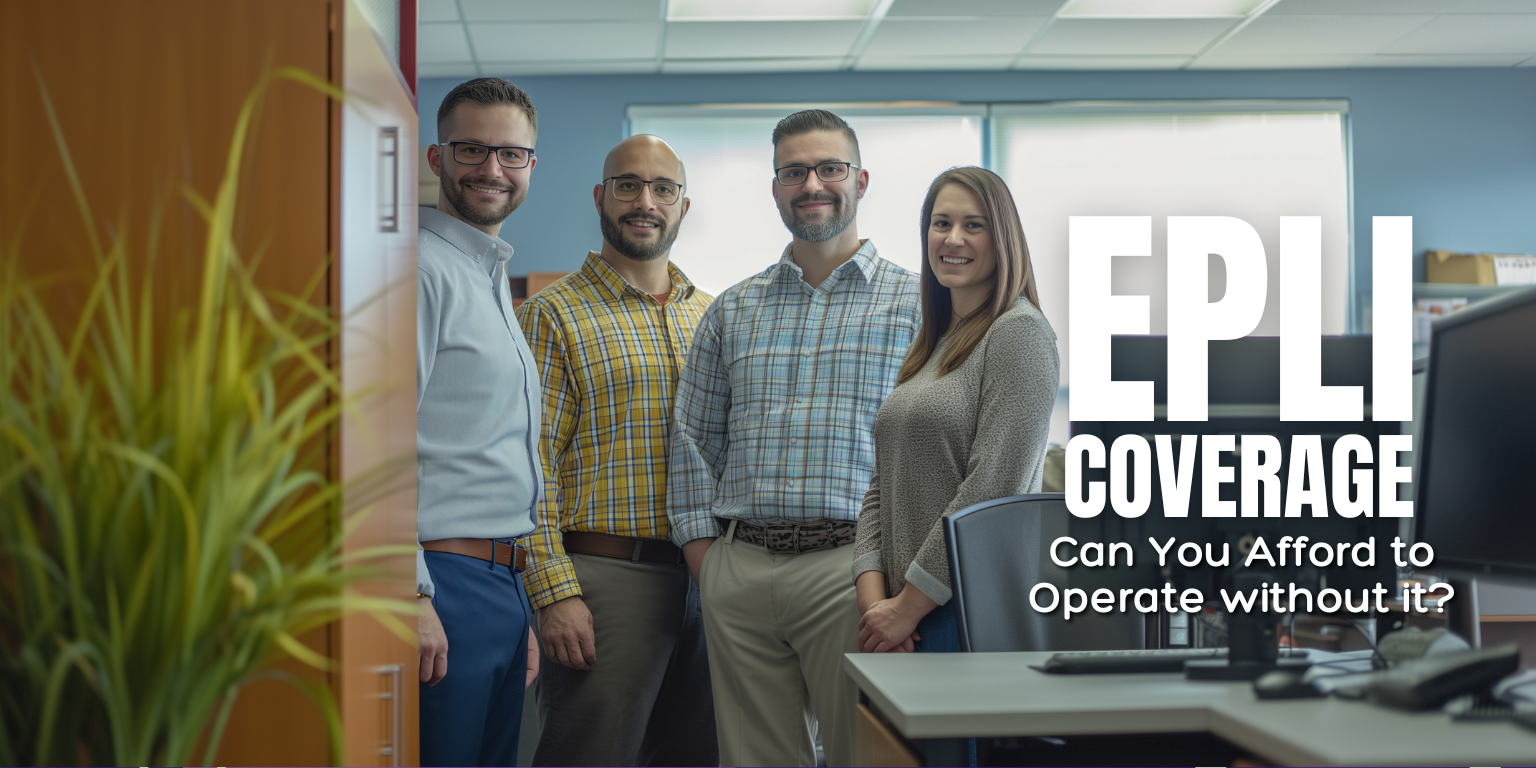
As a business owner, you know how hard it is to find and keep good employees. You want to treat them well and create a positive work environment. You also want to protect your business from any legal troubles that could arise from employment issues.
But sometimes, things go wrong. An employee might sue you for harassment, discrimination, or wrongful termination. A customer or a vendor may accuse you of unfair or unethical practices. A former applicant might claim that you rejected them for the wrong reasons and take legal action.
These are some of the scenarios that can lead to costly and damaging lawsuits that can ruin your reputation and your finances. And they can happen to any business, no matter how big or small, or how careful or ethical you are.
That’s why you need Employment Practices Liability Insurance (or EPLI).
It’s a type of coverage that protects your business from lawsuits related to employment issues. It covers claims made by employees (first party) and, when purchased, claims made by non-employees (third party). And it helps you pay for the legal fees and the potential judgment, up to your chosen limit.
But not all EPLI policies are the same. Some have different terms, limits, and exclusions. Some are easier to get than others. Some are more expensive than others. And some are more effective than others.
How do you know which EPLI policy is right for you and your business?
That’s where we come in.
We are Horan, a local insurance agency in Baldwinsville, New York. We’ve been helping businesses like yours find the best EPLI coverage since 2009. We know the ins and outs of EPLI insurance.
In this article, we will explain what EPLI insurance is and why you need it. We will show you what it covers and what it doesn’t. We will give you some tips on how to prevent and resolve any employment issues before they escalate. And we will show you how to find the best EPLI policy for your business.
What is EPLI Insurance and Why Do You Need it?
EPLI stands for Employment Practices Liability Insurance. It protects your business from lawsuits related to employment issues, such as:
- Sexual harassment
- Wrongful termination
- Discrimination
- Retaliation
- Wage and hour disputes
- And more
These are some of the most common and costly claims that employers face. Without EPLI coverage, you could end up paying thousands or even millions of dollars in legal fees and damages.
A case in point is a discrimination suit brought by a deaf woman who sued a distribution operation in Lysander over warehouse positions. The company refused to interview her. That resulted in a $1.6 million judgment.
Legal issues can arise from different situations, such as:
- The hiring process
- The performance review
- The termination process
- The workplace environment
- Interactions with customers or vendors
Two Types of Claims Covered by EPLI
EPLI insurance covers two types of claims:
- first party and
- third party.
Let’s see what they mean.
First Party Claims
First party claims involve employees who work for the same company. For example, if Mindy sexually harasses Ryan, and they both work for ABC Logistics Inc., based in Herkimer, that’s a first party claim. Ryan can sue ABC Logistics Inc. for allowing the harassment to happen.
Third Party Claims
Third party claims involve people who don’t work for the same company. For example, if Zack, the delivery guy sexually harasses Mindy, and Mindy works for ABC Logistics Inc. that’s a third party claim. Mindy can sue ABC Logistics Inc. for failing to protect her from Zack. Zack can also sue ABC Logistics Inc. if Sandy sexually harasses him. So it goes both ways.
Third party claims are usually related to harassment issues. EPLI insurance covers both first party and third party claims, but some policies may have different limits or exclusions for third party claims. Speak with your insurance agent to fully understand your policy and make adjustments if necessary.
Employment Issues Such As Hiring, Promotions, and Proper Payment
EPLI insurance also covers other employment-related issues, such as:
- Failure to hire
- Failure to promote
- Failure to pay properly
For example, if you pay Stanley more than Jack for the same job, and you have no good reason for it, Jack can sue you for unfair employment practices. EPLI insurance will help you pay for the legal fees and the potential judgment, up to a certain limit.
But there is a catch.
Are Legal Fees Included in the EPLI Policy Limit or Not?
Some EPLI policies include the legal fees in the limit, while others don’t. This can make a big difference in how much coverage you actually have. For example, if your limit is $1,000,000, and the legal fees are $800,000, you only have $200,000 left for the judgment. That may not be enough to cover the damages.
That’s why you should always choose a policy that has the legal fees outside the limit. This way, you will have the full limit available for the judgment, no matter how much the legal fees are. It may cost you more upfront, but it will save you a lot of trouble later.
EPLI insurance has different limits and terms depending on the carrier. Some carriers may offer more coverage than others, but they may also charge more. You should compare different options and choose the one that suits you, your situation, and your budget.
Also check the policy details carefully and make sure you understand what is covered and what is not.
Office Dating Between Employees and Other Employment Issues
EPLI insurance covers many situations that can happen in the workplace, even if you don’t see them or know about them. For example:
- Two employees date each other and then break up. One of them harasses the other in the break room.
- A former employee sues you for age discrimination after being fired and replaced with a younger worker.
- An employee sues you for sexual harassment because they claim one of your team leaders made unwanted advances toward them at a company party.
These are just some examples of how EPLI insurance can protect you from lawsuits that can arise from employment issues.
Qualifying for EPLI Coverage
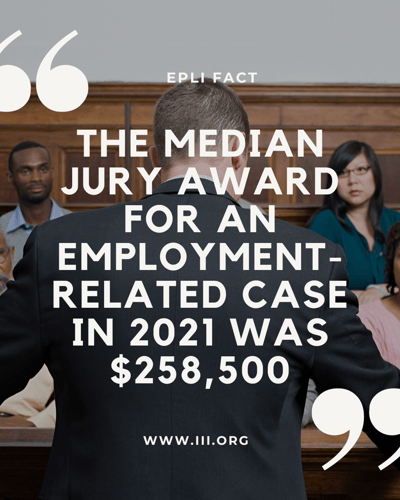 But EPLI insurance is not easy to get. You have to apply for it and prove that you abide by certain practices. The carrier will need answers to questions like:
But EPLI insurance is not easy to get. You have to apply for it and prove that you abide by certain practices. The carrier will need answers to questions like:
- Do you have a handbook that explains your policies and procedures?
- Do you have regular reviews to evaluate your employees’ performance and feedback?
- Do you have a system to handle complaints and resolve conflicts?
- Do you follow the best practices and the legal requirements for your industry and location?
The carrier wants to see that you’re not just buying EPLI insurance to avoid managing the risk. They want to see that you’re doing your best to prevent and reduce the risk.
Being proactive will help you prepare for the road toward obtaining EPLI coverage. That means having an anti-discrimination and harassment policy in place. Also, providing proper employee training and fostering open communication helps. Having a fair disciplinary process also puts you on the right footing.
Refusing to take these necessary measures can result in potential consequences, such as higher premiums or even denial of coverage.
But know that not all businesses, despite their willingness to implement these practices, will qualify for EPLI. That includes businesses that operate with high levels of risk. For instance, if one of the following applies:
- High-risk industries: Businesses in industries with inherently high risks, such as construction, transportation, or healthcare, may face difficulty getting traditional EPLI coverage due to the potential for costly claims.
- Poor claims history: A track record of past employment-related lawsuits or claims can significantly raise a business's risk profile and discourage insurers from offering coverage.
Remember, meeting these criteria isn’t just about securing insurance. It’s about creating a positive and ethical work environment. If you haven’t yet implemented these practices, consider it an investment in your business and your employees.
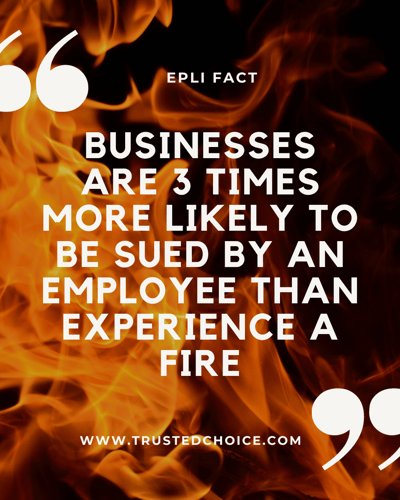 EPLI Can Help Uphold Your Company’s Reputation
EPLI Can Help Uphold Your Company’s Reputation
EPLI insurance is not only about the money. It’s also about your reputation.
If you have a lawsuit related to employment issues, it can damage your image and your credibility. It can make people think that you’re a bad employer who doesn’t care about your employees. It can make people avoid working for you or doing business with you.
EPLI insurance can help you avoid or minimize the reputational harm that a lawsuit can cause. It can show that you’re a responsible employer who takes the necessary steps to protect your business and your employees. It can show that you’re willing to admit your mistakes and fix them.
EPLI insurance can also help you attract and retain good employees. It can show that you value your employees and respect their rights. It may also demonstrate that you provide a safe and comfortable workplace environment. It can help create a fair and ethical work culture.
Get EPLI Coverage Tailored Specifically to Your CNY Business
We hope this article has helped you understand the importance and benefits of EPLI insurance.
As a business owner, you have a lot of responsibilities and challenges. You might have to manage your finances, your operations, your customers, and your vendors. But you also have to manage your employees, who are your most valuable asset.
Your employees are the ones who make your business run. They’re the ones who deliver your products or services. They’re the ones who represent your brand and values. And they can make or break your reputation and success.
That’s why you treat them well and aim to protect them from any harm. And that’s why you need EPLI insurance.
EPLI insurance isn’t a luxury. It is a necessity. It’s protection for you and your employees from lawsuits that can arise from employment issues. It’s a vital tool to help you operate your business with greater care.
But EPLI insurance isn’t enough. You also need to do your part. You need to follow the best practices and the legal requirements for your industry and location. You need to train your staff and create a positive and safe workplace culture. And you need to handle any complaints and conflicts quickly and fairly.
If you do these things, you’ll not only reduce the risk of lawsuits, but you will also improve the performance and the morale of your employees. This will enhance the image and credibility of your business. You’ll likely attract and retain good employees who will help you grow your business.
But if you don’t do these things, you can expose yourself and your employees to more problems and lawsuits. You can also damage your reputation and your finances. You may lose good employees who decide to leave for better opportunities.
We don’t want that outcome for you. Horan is an experienced insurance agency in Central New York. We have the knowledge and the expertise to help you compare different options and choose the one that suits your business.
Click the Get a Quote button below and let us help you secure a tailored EPLI policy.
And learn how these other commercial policies can protect your CNY business:
Daniel is an accomplished content creator. He has been working in publishing for almost two decades. Horan Companies hired Daniel as its content manager in November 2022. The agency entrusted its messaging to him. Since then, Daniel has written insurance articles, service pages, PDF guides, and more. All in an effort to educate CNY readers. He's helping them understand the world of insurance so they can make informed decisions.


